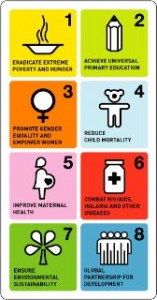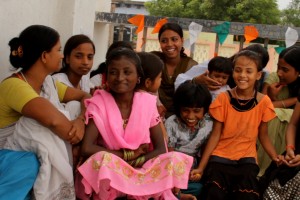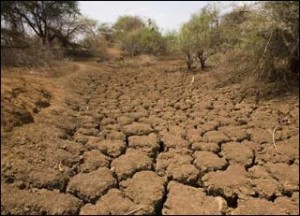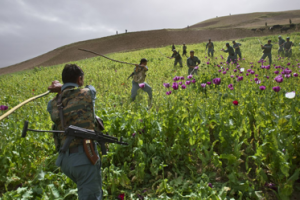In September 2000, the United Nations established eight Millennium Development Goals (MDGs) in hopes of improving social and economic conditions in the world’s poorest countries. The MDGs have caused governments around the world to rally together in a global partnership to make significant progress in some of the most challenging areas in the developing world. The …
Tag: International Development
Jul 01
‘Daughters of the Sex Workers’ Seek Dignity and Respect
Yesterday I facilitated a webinar on Culture, Conflict and Violence against Women: A Focus Sex Trafficking. I raised several issues regarding the vast differences experienced by victims of the sex trafficking industry, particularly as it pertains to culture, gender dynamics and power differentials. I recommended that governmental bodies and non-profit agencies reevaluate motives, revise legislation …
Jun 30
What the East Africa Drought Really Means
Currently, the Eastern part of Africa is experiencing one of the worst droughts on record. More than ten million people are affected in countries such as Djibouti, Ethiopia, Kenya, Somalia, and Uganda. With increasing food prices, dry land, failing crops and dying livestock, many Africans in these countries simply don’t have access to food. Malnutrition …
Jun 30
Sudan’s Chinese Influence
President Hu Jintao’s pledge to continue investing heavily into Sudan raises a few cautionary flags In my post on Sudan’s wildlife, I briefly mentioned how countries that rely on Sudan’s oil reserves will continue to be among the country’s strongest supporters. I cited China as a key example of this, seeing as how 2/3rds of …
Jun 29
Conservation and development
Beyond the tragedy of the commons Very often the countries with abundant resources are the poorest and the least developed. Common wisdom assumes that development requires exploitation of these resources. But is there an alternative? In recent years, there has been an increase in sustainable and eco-friendly businesses that challenge this assumption. Eco-tourism is one …
Jun 27
Spotlight On: Bridges to Community
In the past few weeks, I’ve written about how difficult it is for for a nonprofit organization to successfully address more than a single issue in a sustainable way. Complex problems – like poverty, for example – can rarely be solved by fixing just one aspect, which makes it difficult to make sustainable change. One …
Jun 23
The Necessity of Training
Pulling out from Afghanistan without leaving behind a native security force capable of handling the job would be a mistake Towards the end of my second deployment to Iraq, I was offered a rather unique opportunity. Through a hookup from a fellow Arabic linguist, my coworkers and I were allowed to join a police training …
Jun 23
Opportunity in the Developing World
When someone thinks of an “underdeveloped” or “developing” country, it’s all too easy to envision an area that is lagging behind (both technologically and economically) the Western world. It’s common to think of these places as needing our help to catch up to the standards we set and to follow the trends that we start. …
Jun 22
Brilliant Partnership or Potential Disaster?
The University of Oregon and the Global Oregon Initiative recently announced an interesting—and controversial—partnership: a partnership with the government of Gabon. This one-of-a-kind cooperative agreement has a noble purpose: to establish joint research centers in Eugene and Libreville in order to study sustainability, economic development, and natural resource management. However, the union is problematic because of …
Jun 21
Opium and Afghanistan
The opium industry in Afghanistan is booming! But will it remain this way? The poppy plant, from which opium is derived, has been a staple crop of Afghan farmers for many years now. And for good reason, for poppy is relatively easy to take care of and fetches a lot of money. However, only 10% …












